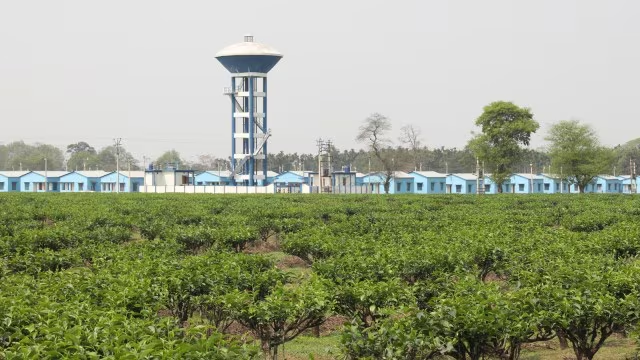Description

Disclaimer: Copyright infringement is not intended.
Context:
- In the lower reaches of the Himalayas in West Bengal, workers struggle with hunger, poor pay, and the intermittent shutting down of large tea plantations.
Issues faced by People of Dooars:
- The Plantation Labour Act (PLA) 1951, directs the garden owners to provide housing, medical, ration, and educational facilities for workers' wards, water, and other welfare facilities. The tea estates of Darjeeling Hills/Dooars have a severe scarcity of drinking water. Natural spring water and Jhora are the only sources of water. Almost all the tea gardens have no creche or labor welfare officer. The tea workers' condition in Dooars is far worse than it had already been. A writ petition was filed in the Supreme Court by the International Union of Food & Agricultural Workers and it was observed by SC in 2010 that hundreds of workers have died of starvation due to cuts in ration supply and unavailability of drinking water since 2002.
- The administration of tea gardens are under the state government whereas the tea industry is controlled by the union govt. The power that can be used to improve the living condition of the workers lie with the state authority. However, people raise the issue of neglect by the state government.
- The payment of bonuses to industrial employees is mandatory under the Payment of Bonus Act, of 1965, based on the employer’s earnings in the previous fiscal. The PLA 1951, directs the state govt to enforce the minimum wage under the Minimum Wage Act (MW) 1948, for the workers revised every five years by the GOI. However, the government even fails to provide the minimum amount of bonus demanded by people.
- The unskilled workers in the Beedi factory in West Bengal are given more than the prescribed MW directed by the Labour Ministry of GOI, whereas the Tea workers in Darjeeling/ Doars are paid as low as Rs 132 per day. The MW for the plantation workers in the neighboring state Sikkim is Rs 300 per day, in Kerala Rs 350 per day including the health insurance, in Karnataka it is Rs 263.29 per day, and in Tamil Nadu Rs 241.31 per day. This difference in the will of each state government and the disinterest of the Bengal govt in implementing the MW is objective by people.
About Doors:
- Dooars is a vast area in northeastern India, below the Himalayan foothills and Brahmaputra plain.
- It's around 30 km wide and extends about 350 km from the Teesta River in West Bengal to the Dhansiri River in Assam.
- It serves as a passage to Bhutan, Sikkim, and Eastern Nepal, with 18 gateways between the hills and plains.
- Split by the Sankosh River, it's divided into Eastern and Western Dooars, totaling 880 km2. Known for its fertile soil, especially for tea plantations, it's a hub for the tea industry, employing thousands of people.
Source:
The Hindu
https://thedarjeelingchronicle.com/struggles-of-tea-garden-workers/
|
Practice Question
Q. Discuss the socio-economic challenges faced by the people of Dooars, particularly in the tea estates, highlighting issues such as access to basic amenities, healthcare, and fair wages. Analyze the role of state and central government policies in addressing these challenges and the disparity in minimum wage implementation compared to neighboring states. (250 words)
|











